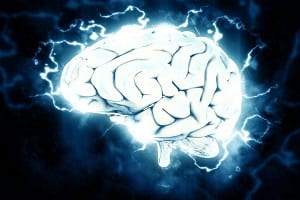For years, scientists believed there might be a connection between amyotrophic lateral sclerosis and frontotemporal lobar degeneration (FTLD), also sometimes known as frontotemporal dementia. However, researchers from Osaka University may have finally discovered a concrete connection. EurekaAlert describes how the researchers identified a specific RNA-related fault in patients with FTLD and ALS. Because the fault affects the RNA’s quality control, toxic proteins are produced – and accumulated – at high levels. Find the full study in The EMBO Journal.
The Research
At first, researchers wanted to explore FTLD and ALS because they share genetic elements, such as a repeating C9orf72 gene. In fact, researchers linked the RNA fault behind both disorders to this malfunctioning or mutated gene. This repeating pattern prevents cells from destroying defective RNA, leading to the overproduction and accumulation of toxic proteins. Without being able to reduce this production, the disease speeds up.
To discover these findings, researchers explored the RNA exosome on a cellular level. The exosome traditionally destroys and removes defective RNA. In the case of FTLD and ALS, EXOSC10 is damaged. As a result, the repeat RNA and toxic proteins build up. This leads to neurodegeneration. In the future, addressing the C9orf72 repeats may lead to therapeutic targets and additional treatment options.
Amyotrophic Lateral Sclerosis (ALS)
The cause of amyotrophic lateral sclerosis (ALS), a progressive neurological disease, is unknown. However, researchers believe toxin exposure could play a role. Additionally, in 5-10% of cases, ALS may be caused by familial genetic mutations. During the course of the disease, nerve cells in the brain stem, brain, and spinal cord die. This causes muscle weakness. Generally, this weakness is eventually fatal as it weakens chest muscles, causing breathing issues. ALS affects males more than females, white men more than other racial groups, and those between 60-69. Symptoms vary but may include:
- Psychological stress
- Anxiety
- Arm, hand, and leg weakness
- Difficulty with small movements (holding objects, walking)
- Changes in speech
- Frequent tripping or falling
- Difficulty swallowing, speaking, or breathing
- Muscle pain
Learn more about ALS.
FTLD
Frontotemporal lobar degeneration is also known by a variety of other names: frontotemporal dementia, frontotemporal degeneration, and Pick’s disease. According to the Association for Frontotemporal Degeneration (AFTD), FTLD is the most common cause of dementia for those under 60 years old. The average onset occurs between ages 45 and 64, although it can occur as early as 21. It is often misdiagnosed as depression or Alzheimer’s disease. However, FTLD is characterized by shrinking, or degenerating, frontal lobes. As a result, people may experience progressive changes in mood, behavior, movement, and language.
Symptoms of FTLD include:
- Worsening and inappropriate social behavior
- Low empathy
- Lack of judgment
- Difficulty with sentence construction
- Muscle stiffness, rigidity, and spasms
- Loss of inhibition
- Compulsive behavior
- Difficulty using and understanding language
- Apathy
- Reduction of personal hygiene
- Difficulty swallowing
- Tremors
- Overeating
- Changes in speech
- Forgetting the meaning of words
- Loss of coordination
- Pica (eating inedible objects)
- Inappropriate laughing or crying
Learn more about FTLD.






